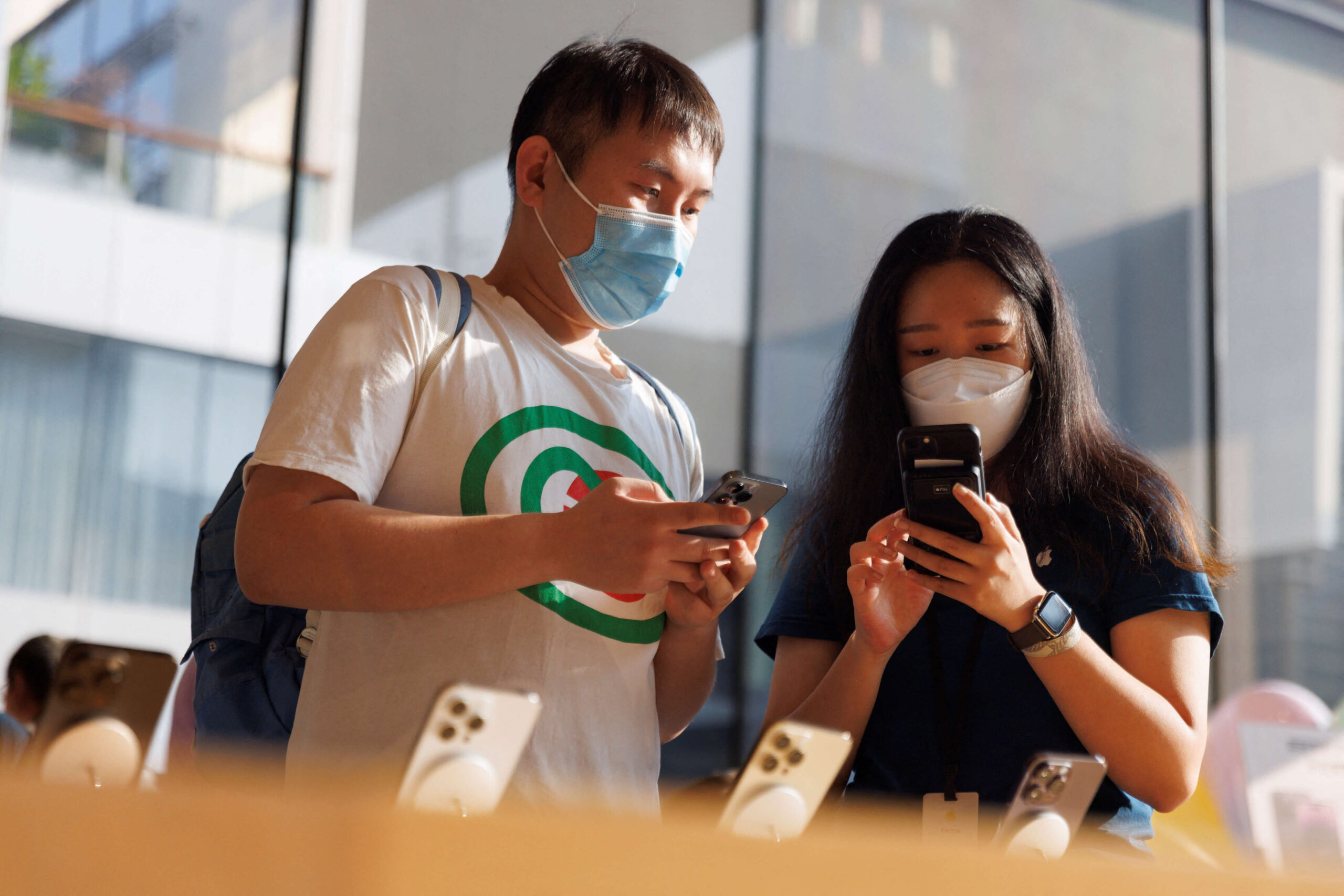On September 12th, Apple unveiled its latest iPhone 15, sparking a range of reactions in its third-largest market, China. The Chinese tech enthusiasts and consumers had mixed sentiments towards this latest addition to Apple’s lineup. Many online users expressed their admiration for the device’s faster chip and enhanced gaming capabilities. The iPhone 15 Pro’s new 3-nanometer chip, coupled with Apple’s assertion that console-quality games like “Resident Evil 4 Remake” could be played on the device, particularly resonated with China’s extensive mobile gaming community.
However, it’s worth noting that not everyone in China was quick to embrace Apple’s new offering. Some preferred Huawei’s new smartphone, showcasing the ongoing competition in the Chinese smartphone market. China has been a crucial market for Apple, especially after the decline of Huawei Technologies’ smartphone business due to U.S. export controls. The trade tensions between the U.S. and China have also put Apple under scrutiny leading up to the iPhone 15’s launch.
In the lead-up to the iPhone 15 release, Apple and its suppliers faced some challenges in the Chinese market. Reports emerged suggesting that Chinese government agencies and state firms were banning staff from using the iPhone. Additionally, Huawei introduced a new smartphone with an advanced chip, signaling its determination to make a comeback in the market. These developments stirred up significant discussions online.
The iPhone 15’s unveiling generated intense online discourse, as previous iPhone models have in the past. The device was scheduled to go on sale online in China on Alibaba’s Tmall marketplace on September 15th, followed by in-store availability on September 22nd. Topics related to the iPhone 15 launch garnered a staggering 380 million views on the social media platform Weibo, along with over 800,000 discussions, including posts, comments, and likes.
While many applauded the technological advancements of the iPhone 15, several Chinese social media users hesitated to choose an American brand over a domestically made rival, particularly in the wake of state media praising Huawei’s Mate 60 Pro as a triumph over U.S. sanctions earlier that month. A survey conducted by Chinese news portal Sina on social media asked participants whether they would prefer the Mate 60 or the iPhone 15, with 61,000 votes favoring the Huawei device compared to 24,000 for the iPhone 15.
One key point of discussion centered around the device’s satellite communication capabilities. Comparisons were made between the Mate 60 Pro’s ability to make calls and send texts via satellite, while the iPhone 15 was only capable of sending satellite texts. Some users pointed out that the iPhone 15 could only send SOS messages via satellite, using last-generation technology already deployed in Huawei’s Mate 60, which supports full satellite calling.
It’s important to note that China’s smartphone market, much like the global smartphone sector, has been experiencing a slump, and analysts raised concerns that this, coupled with China’s slowing economy, could potentially impact iPhone 15 sales. Earlier in the year, Apple’s third-party retailers in China offered rare discounts on the iPhone 14 Pro, up to 10% off, which boosted sales but might undermine demand for the latest iPhone series, according to analysts.
Apple faces a mixed landscape in China with the release of the iPhone 15. While it continues to hold a leading position in the premium smartphone market, competition from domestic brands like Huawei remains fierce. Public sentiment, economic conditions, and increasing competition in the premium phone market all pose challenges for Apple’s iPhone 15 sales in China, and its market share may gradually decline in the face of these factors.





